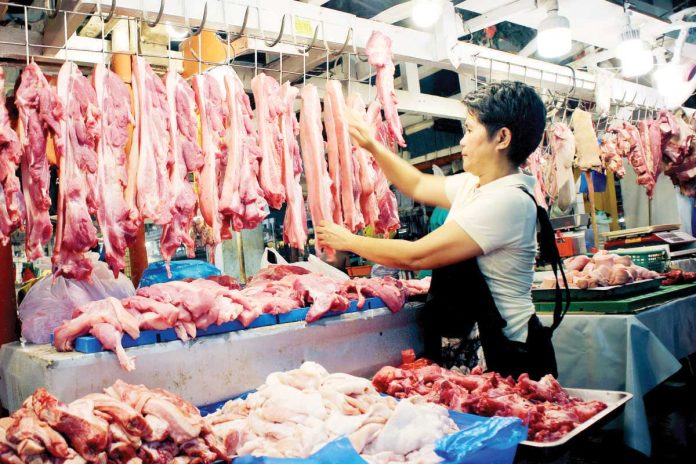
THE country increased its meat importation in the first three months of 2025 to boost supply amid the ongoing battle against African Swine Fever (ASF).
Data from the Bureau of Animal Industry (BAI) showed that meat imports had totaled 344.59 million kilograms as of end-March, a 25.9 percent increase from the 273.64 million kilograms in the same period a year ago.
Pork imports accounted for 183.19 million kilograms, accounting for 53.2 percent of the total, mostly consisting of pork cuts and offals. This represented a surge of 42.5 percent from the year prior.
Chicken ranked second with the import volume reaching 111.36 million kilograms, equivalent to a share of 32.3 percent. It reflected an increase of 14.8 percent.
Importers mostly bought mechanically deboned chicken or mechanically separated meat, which is used in manufacturing various food products such as hotdogs.
Beef imports were a distant third with 43.88 million kilograms, up by 24.2 percent, mainly beef cuts. This meat product held a share of 12.7 percent during the reference period.
Traders also purchased 5.94 million kilograms of buffalo, equivalent to a share of more than 1 percent.
They also brought in small quantities of lamb (154,419 kilograms), turkey (54,088 kilograms) and duck (18,544 kilograms).
Top suppliers
The same data revealed that Brazil has remained the top supplier of imported meat with 149.8 million kg or 43.5 percent share.
Other suppliers include the United States (13.2 percent), Spain (11.7 percent) and the Netherlands (6.2 percent).
The Philippines recorded higher meat imports even as active ASF cases dipped, with the BAI tally as of April 25 showing that seven provinces and five regions are currently infected.
It was a slight difference from active ASF cases in eight provinces and five regions based on the BAI’s April 11 report.
As of writing, affected provinces are Abra, Benguet, Nueva Ecija, Zambales, Bohol, and Northern Samar.
Pork tariffs under review
The Department of Agriculture (DA) previously said it was revamping a 30-year policy that kept tariffs on pork low, noting that “a small number of accredited importers” have been exploiting this system since its inception.
The DA’s Policy and Planning Office was given until October this year to complete the revisions on the minimum access volume (MAV) rules.
MAV is a trade mechanism that allows the importation of an agricultural product at lower tariffs, according to the World Trade Organization.
Based on Executive Order No. 62, the tariff on swine, fresh, chilled or frozen meat bound for the archipelago was retained at 15 percent if within import quota and 25 percent for out-quota shipments.
Meanwhile, import duty on mechanically deboned or separated meat of chicken and turkey was set at 5 percent. (Jordeene B. Lagare © Philippine Daily Inquirer)







